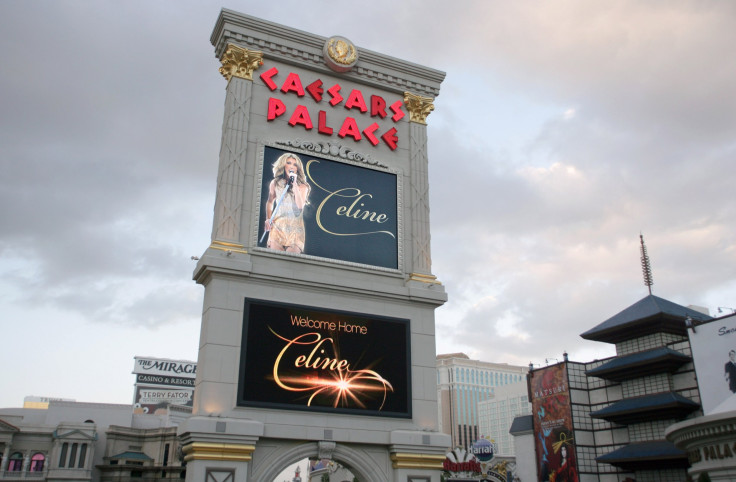Bidders Sought For Caesars' Bankrupt Casino Operating Unit

By Tracy Rucinski
CHICAGO (Reuters) -- When a bankrupt operating unit of Caesars Entertainment went on the market earlier this month, the package consisted of 38 casinos, including the iconic Caesars Palace Las Vegas. But those watching the sale have focused more on what isn’t being offered.
Potential bidders for CEOC, a casino-operating unit of Caesars Entertainment would be wading into the middle of a costly and complicated bankruptcy, and they note that Caesars has left key assets - including a crucial piece of its big-data customer loyalty program - out of the package.
The offering comes at a time when consumer spending is rising, making regional gaming assets once again desirable.
Analysts and some junior creditors have suggested, however, that Caesars isn’t serious about selling its CEOC operating unit and expressed doubt that the offering will attract any bidders. In court documents, the operating unit itself noted that the bidding process "may not result in any offers" and that if there is a successful bid "there is no guarantee that the transaction will close."
One major factor behind buyers' skepticism about Caesars' proposed sale, designed to test CEOC's value under a plan to emerge from its $18 billion bankruptcy, is that the operating unit lacks clear control of its Total Rewards loyalty program, analysts and industry players said.
The Total Rewards program was the brainchild of former CEO Gary Loveman, who honed his customer service theories while teaching at Harvard Business School.
The industry's biggest loyalty program, Total Rewards offers points for spending at casinos in outlying markets, such as Iowa or along the Gulf Coast, that gamblers have been able to redeem at Caesars' mega-resorts in Las Vegas - most of which are not included in the operation unit's casino sale package.
The program manages sought-after information on it 45 million members' spending habits, and it instantly adds value to any casino brought into the program.
Under a complex operating structure, CEOC owns Total Rewards. But a separate, non-bankrupt unit called Caesars Enterprise Services controls the licensing agreement that channels business between casinos putting that piece of the program out of reach of bidders for the casino operating unit.
"It's difficult to imagine a third party coming along and bidding for the assets without Total Rewards," said Fitch Ratings analyst Alex Bumazhny. "And the fact that the company is still in a complex, litigious bankruptcy could complicate matters," he said. Potential buyers may also be discouraged by the web of affiliates that own the company's Caesars, Harrah's, Bally's and Horseshoe casinos.
For example, the bankrupt unit owns Caesars Palace Las Vegas, Caesars' flagship casino. However, the casino's Octavius Tower for high rollers is owned by another unit of the parent called Caesars Entertainment Resort Properties, and will not be part of the sale.
The sprawl of Caesars affiliates was created in recent years by Apollo Global Management and TPG Capital LP, who control Caesars parent company, in a series of deals meant to shore up the casino empire's finances.
Apollo and TPG created Caesars Entertainment through a $30.7 billion buyout of Harrah's in 2008, but the business ran into trouble soon after, when the financial crisis hit U.S. gambling enterprises. CEOC filed for bankruptcy in January.
BITTER BANKRUPTCY
Bankrupt companies including Lehman Brothers and General Motors have used asset sales to quickly raise money for their creditors and preserve the value of a business. In the case of Caesars the planned sales have further stoked the anger of junior creditors, including hedge funds such as Oaktree Capital Management LP and Appaloosa Partners Inc, who are questioning the company's intentions in court.
Junior creditors have filed lawsuits challenging the transfer of assets prior to CEOC's bankruptcy, claiming that Caesars Entertainment looted the casino operating unit of its best assets, leaving it with little money to pay obligations to lower-ranking debt holders.
Ceasars has said the transfers were legitimate, and the company is contributing $1.5 billion to the bankruptcy plan. It says that the sales process will prove whether or not that amount is fair.
But in court papers filed in response to Caesars’ new reorganization plan, Proskauer attorneys representing the unsecured creditors committee asserted that without prime assets, the proposed sale will fail to draw the best price possible for the bankrupt unit's estate.
One measure of whether Caesars has put together a sufficiently attractive sales package and process will be whether bidders ultimately include key industry participants, such as Boyd Gaming Corp, Penn National Gaming Inc and Gaming and Leisure Properties Inc, which buys real estate leased to casino operators such as a recent deal with Pinnacle Entertainment Inc. GLPI and Boyd declined to comment. Penn did not reply to a request for comment.
(Additional reporting by Tom Hals in Delaware and Mike Stone in New York; Editing by Amy Stevens and Sue Horton)
© Copyright Thomson Reuters 2024. All rights reserved.




















